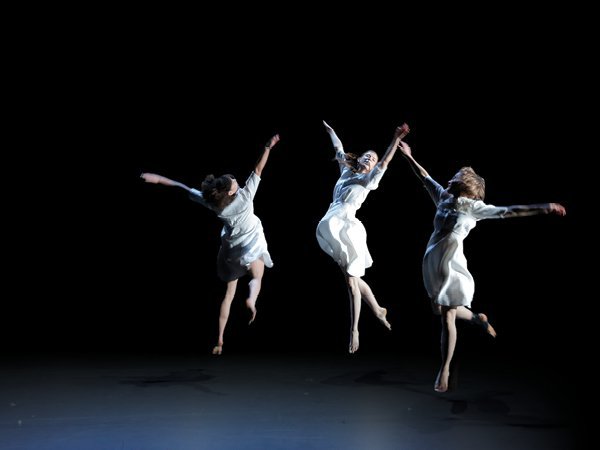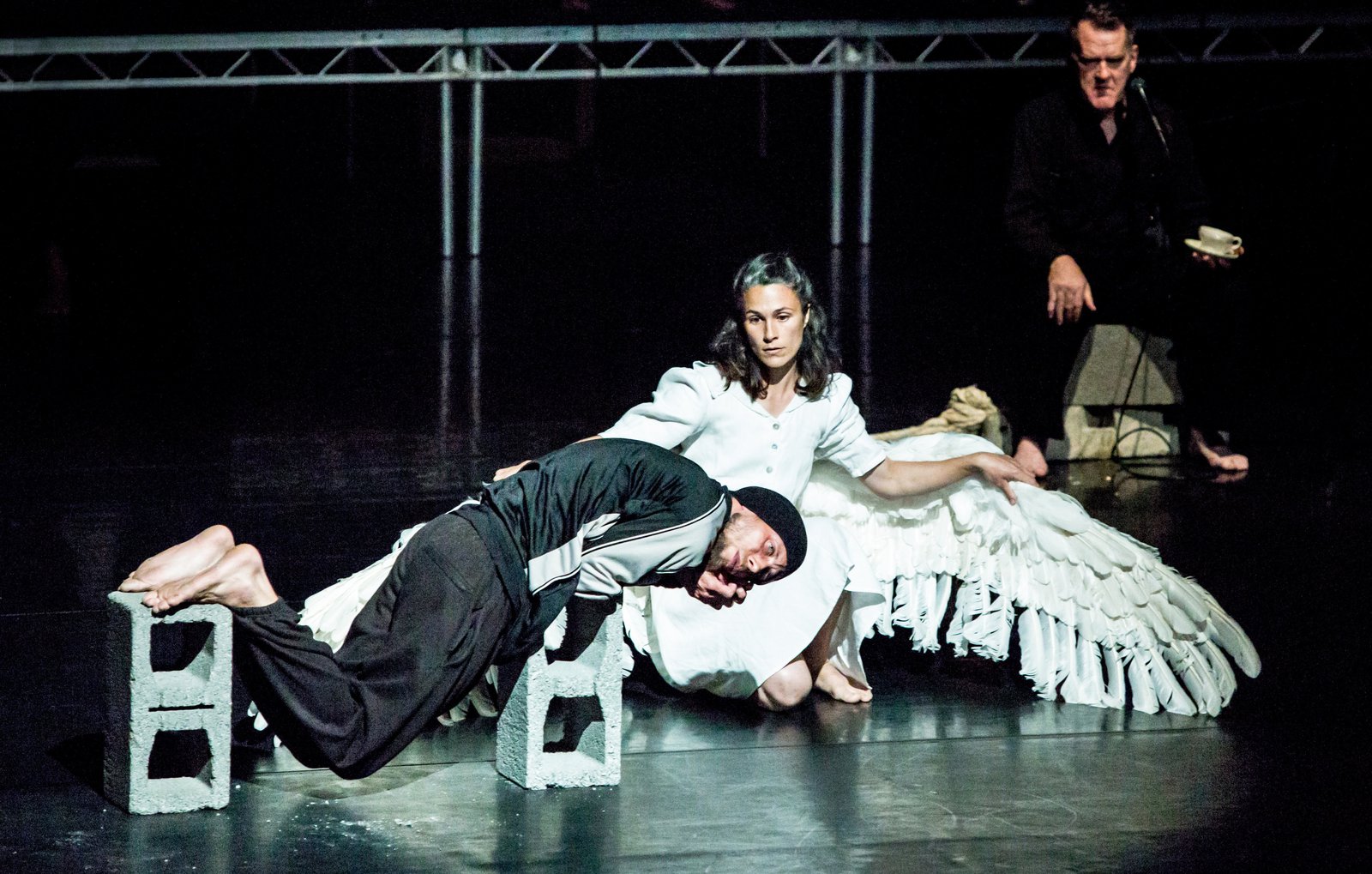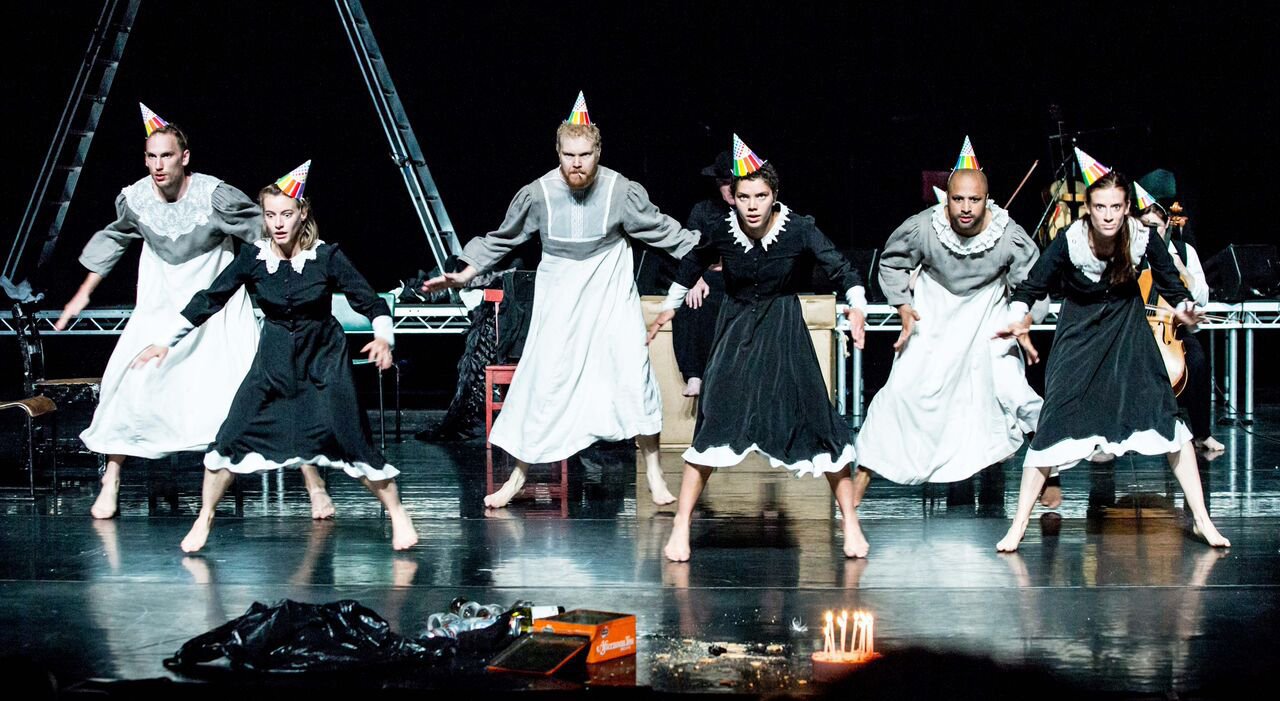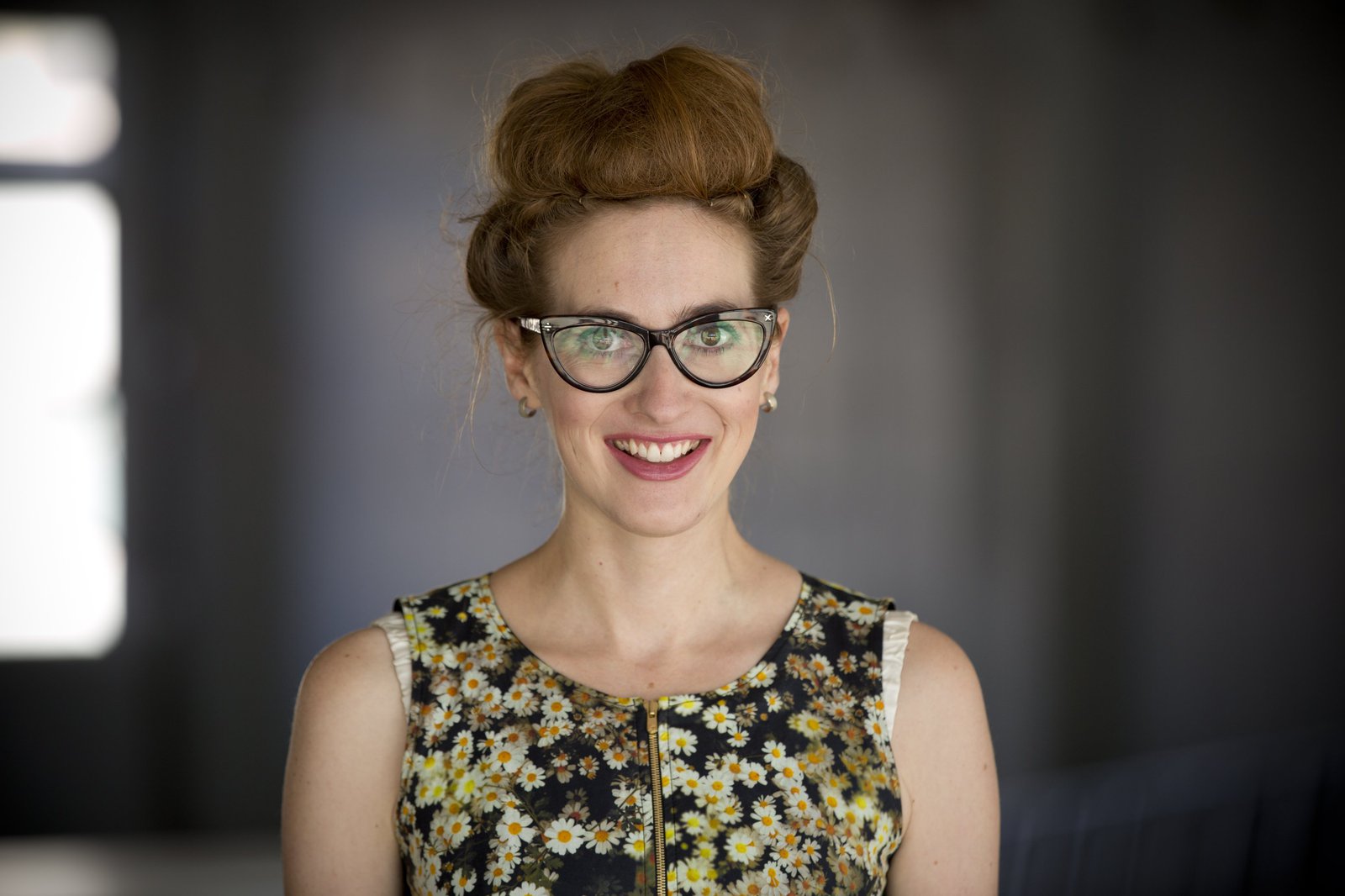Charlotte Graham-McLay • 15 December 2017
Wellington-based journalist and former ballet dancer Charlotte Graham takes a look at Michael Keegan-Dolan's Swan Lake/Loch na hEala, and finds a daring, moving reinvention of one of the world's most traditional ballets.
 credit: Colm Hogan
credit: Colm Hogan
Swan Lake/Loch na hEala is partnered by Wellington Airport and supported by Culture Ireland. It runs at the New Zealand Festival from Wed 14 Mar – Sat 17 Mar. Get your tickets here.
If 2017 turned out to be the year of women fighting their way to the spotlight, after years of enforced silence, to tell their stories of harassment and abuse, it is perhaps no better time to revisit the timeless, mythical tale of women cursed by a powerful sorcerer to live as swans. While the maidens of Swan Lake never get their moment to demand a reckoning for powerful men, the story – perhaps more poignantly than ever – depicts, through magical realism, the way women are stripped of their agency and voices, in part to prevent the naming and truth-telling about men who have hurt them.
-It is perhaps no better time to revisit the timeless, mythical tale of women cursed by a powerful sorcerer to live as swans
The old tale finds a new significance and political urgency in Michael Keegan-Dolan’s production of Swan Lake/Loch na hEala, which follows the Irish director-choreographer’s retellings of other ballet classics. That’s partly because of the current global narrative of women coming forward, but also in the way that Keegan-Dolan deploys the traditional myth to clever and devastating effect.

credit: Marie-Laure Briane
Daring to reinterpret Swan Lake, one of the best-known texts in classical ballet, is an audacious move. Dance-loving audiences are likely to have seen more than one performance of Tchaikovsky’s ballet with variations on its traditional choreography, along with modern reboots with gender-swapped characters, present-day costumes or additional scenes. As well, audiences new to dance might well be made nervous by the name, and worry about whether an understanding of the ballet is necessary to enjoy this production.
-Daring to reinterpret Swan Lake, one of the best-known texts in classical ballet, is an audacious move
Such fears are unwarranted. As a devotee of the original ballet, and an avowed cynic of productions providing modern updates merely for the sake of it, I was spellbound by Keegan-Dolan’s interpretation. It left me breathless and moved, a reminder of my first viewings of the classical ballets as a little girl: the wonder and horror of seeing the story unfold when you didn’t know what was coming next. Those new to the ballet are accommodated by a blend of spoken dialogue, song, live string music and dance, which harnesses traditions of Irish storytelling to drive the narrative in a natural, compelling way.
-As a devotee of the original ballet, and an avowed cynic of productions providing modern updates merely for the sake of it, I was spellbound by Keegan-Dolan’s interpretation
A young man, Jimmy – in the place of the ballet’s traditional Prince Siegfried – is an outsider in a poor Irish town, struggling with depression as he reels from the death of his father. The way he is knocked off-kilter by meeting the swan maiden with whom he falls in love makes complete sense in this retelling; both he and swan have been condemned by their society as worthless and unimportant, and in their brief, ill-fated love are able to find a moment of connection and relief. The social and political context is a meditation, in particular, on Ireland’s culture of silence around the abuse of the vulnerable by religious figures, but the way Jimmy’s despair is rooted in a conviction that he has no value has uncomfortable parallels in New Zealand’s treatment of the marginalised.
Such weighty subject matter is explored to truthful and devastating effect by an outstanding cast: the actor Mikel Murfi is captivating in the central role of the narrator, moving with ease between the characters of a priest, an incompetent police officer, and a corrupt politician. Rachel Poirier’s swan queen is a triumph; while in this production, in keeping with the myth, the cursed woman does not get her comeuppance against the man who has hurt her, Poirier communicates the visceral bewilderment, grief and rage of a young woman who is torn apart and then cruelly silenced from telling the truth. Her performance in the production’s most heartbreaking scenes is graphic – emotionally, rather than literally – and likely for some to confront and disturb.
The choreography in this production puts aside traditional ballet steps, employing an earthy, rhythmic contemporary style with movements crafted around the wing beats of birds, and the women dancers in particular soar in its execution. While the steps are relatively simple throughout, a reinterpretation of the traditional pas de deux between the lovers delivers everything audiences have come to expect from the same moment in the traditional ballet.
-The choreography in this production puts aside traditional ballet steps, employing an earthy, rhythmic contemporary style with movements crafted around the wing beats of birds

credit: Marie-Laure Briane
The climax of Swan Lake/Loch na hEala weaves together joy and grief in a way that startles, unsettles and satisfies. There is, impossibly, so much new to say about Swan Lake in this production and it is guaranteed to remain with audiences long after they leave the theatre, following, I suspect, a rapturous reception.
 Charlotte Graham
Charlotte Graham
credit: Guy Ryan
Charlotte Graham is a Wellington-based journalist and broadcaster with a background in dance. She writes for the New York Times and Radio New Zealand.
Charlotte Graham-McLay is a New Zealand reporter for the Guardian and a contributor to The New York Times. Her writing and reviews have also been published by Al Jazeera, Vice, the Telegraph, the BBC and New Zealand Geographic. Charlotte previously worked for a decade at Radio New Zealand.


